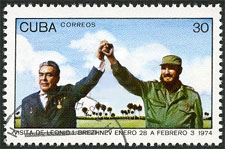|
|
|
Sellers began reporting in April that PayPal was freezing payments for coins and stamps originating in countries such as Cuba and North Korea - despite the fact that the sellers and items were not located in those countries. Belgian auction site Delcampe notified its members this month, explaining that at the beginning of May, "PayPal froze payments for items including the name of the countries subject to U.S. embargo (Cuba, Iran, Ivory Coast, Iraq, Lebanon, Libya, North Korea, Somalia, Sudan, Syria, Yemen, Zimbabwe)." Delcampe told its members PayPal had not notified it of the new policy, but said it contacted the eBay payments unit immediately after reports from sellers began surfacing. According to Delcampe, "They told us that this was the application of a new measure. The overall principle is that the sale of goods cannot bring money to countries under embargo, because in this case they are automatically blocked. This blocking is but only temporary when the names of countries in question are only included in the title of the item and the sale does not bring any money to countries under embargo. This is the case for the vast majority of collectibles sold on our site." A spokesperson for PayPal sent the following statement to EcommerceBytes in response to our inquiry: "PayPal makes every effort to comply with the laws and regulations in the countries in which we operate around the world. In order to comply with government regulations, in April PayPal began to no longer process payments for coins, currency and stamps originating in U.S.-sanctioned countries. To avoid being impacted by this change, we recommend that businesses stop offering PayPal as a payment option for the sale of U.S.-sanctioned goods or services or to pay for shipping these goods to sanctioned countries." Controversy often swirls around the world of collecting. One notable case - back when Yahoo had an auction site, it got in trouble thanks to France's ban on Nazi material. But apparently it's not just collectibles dealers being impacted by PayPal's new policy. The UK newspaper the Independent reported in April that PayPal had shut down the account of a coffee merchant in England who was selling Cuban coffee beans, despite the fact they weren't selling the beans to U.S. customers. "The UK does not and never has operated an embargo on Cuban imports," the newspaper stated. So merchants and dealers, consider yourself warned if you wish to sell items originating from U.S. foes - think twice before offering PayPal in those listings. |
|
|
About the author:
Ina Steiner is co-founder and Editor of EcommerceBytes and has been reporting on ecommerce since 1999. She's a widely cited authority on marketplace selling and is author of "Turn eBay Data Into Dollars" (McGraw-Hill 2006). Her blog was featured in the book, "Blogging Heroes" (Wiley 2008). Follow her on Twitter at @ecommercebytes and send news tips to ina@ecommercebytes.com. |
Copyright 1999-2013. Steiner Associates LLC. All rights reserved.
http://www.ecommercebytes.com/cab/abn/y13/m06/i12/s01
 A new policy
at eBay's payments unit is resulting in frozen funds for some
sellers. And while it's always unexpected to see politics
directly impact the world of collecting, it's not uncommon.
A new policy
at eBay's payments unit is resulting in frozen funds for some
sellers. And while it's always unexpected to see politics
directly impact the world of collecting, it's not uncommon.